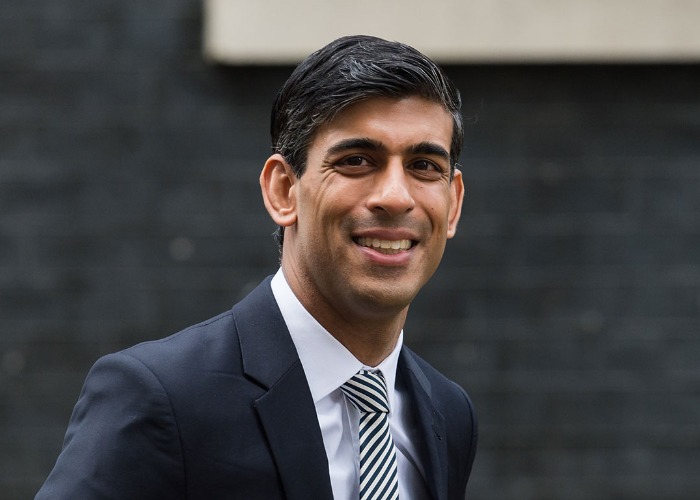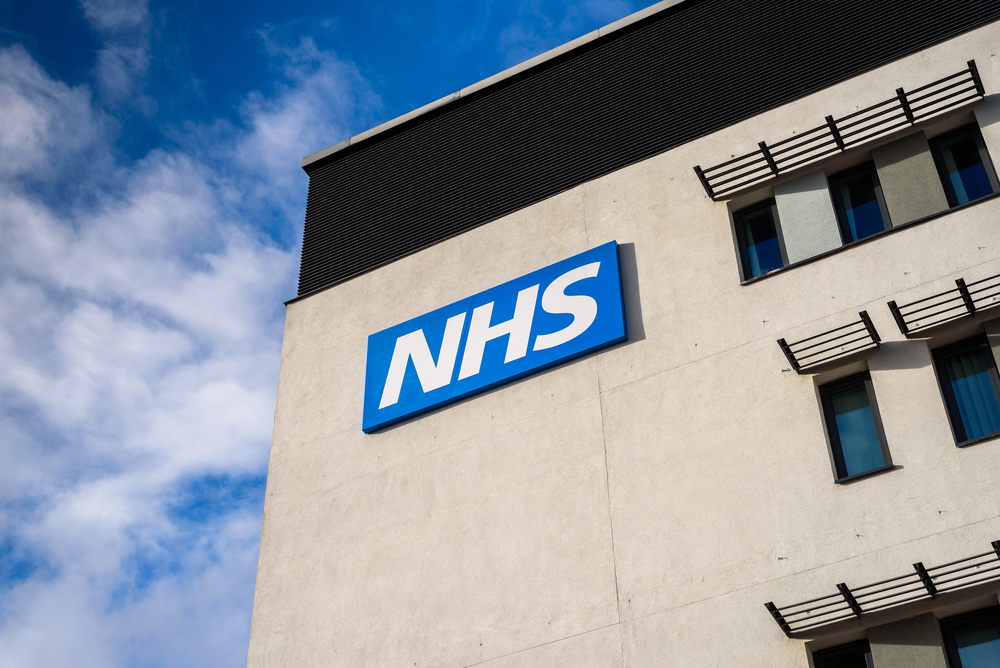Budget 2020: the key announcements affecting your money

Are you better or worse off after the chancellor's Budget speech? We run through the key financial changes affecting your finances.
Chancellor Rishi Sunak has well and truly loosened the purse strings with plans to spend billions on everything from the NHS to potholes.
But what were the key announcements affecting you? And will you be better or worse off as a result? Read on to find out.
The Coronavirus & your money
Unsurprisingly, this first Budget from Sunak was overwhelmingly geared towards battling the Coronavirus outbreak.
The former Goldman Sachs banker announced a raft of economic measures worth £12 billion specifically aimed at dealing with the virus.
“Coronavirus will have a significant impact on our economy but it will be temporary,” he told Parliament.
“We are doing everything we can to keep this country and our people healthy and financially secure.”

Sick pay and the gig economy
As part of these plans, the chancellor pledged additional security for those who can’t work.
Statutory Sick Pay will be paid from day one rather than day four for the employed.
It will also be available for those who self-isolate even if they don’t have the symptoms and they will not have to visit a GP for a sick note, and instead they can secure one by ringing the NHS 111 line.
For those working in the gig economy or who are self-employed, the Government will make it easier for them to access benefits.
Those receiving help will be able to claim from day one rather than day eight, while the Government is also temporarily removing the minimum income floor for National Insurance.
To avoid passing on infection, those affected will not have to visit a Job Centre to fill in the paperwork.
How to insure your income if you become unable to work
Wages and taxes
As expected, the National Insurance threshold will increase from £8,632 to £9,500 in April. This means 31 million workers will get a tax cut worth around £100 year, or £8 a month. Not exactly life-changing, but better than nothing.
National Living Wage
In an increase in the National Living Wage (NLW), two million workers will see their wages rise by 6.2% to £8.72 an hour – an average pay rise of almost £1,000 a year, says Sunak.
The Government is publishing a new remit for the independent Low Pay Commission, which sets the NLW and, by 2024 it is to reach two-thirds of median wages or £10.50.
Pensions
On the pensions front, the main announcement was a change to the pension tax relief limits, which affects high earners.
You may have seen various headlines last year about doctors holding off working additional hours in order to avoid falling being hit with far higher tax bills once they earned more than £110,000.
From April, the 'tapered annual allowance' will increase significantly by £90,000 to £200,000. Effectively, this greatly simplifies pension taxation for anyone earning less than the new figure.
While industry analysts broadly applauded the move, they did suggest the chancellor should have simply done away with the confusing allowance altogether.
As Clare Moffat, head of business development at Royal London, said: “The chancellor’s decision to raise the threshold at which the tapered annual allowance kicks in is welcome but the pension tax system remains overly complex.
"In reality, the chancellor has missed the ideal opportunity to massively simplify the system by removing the taper altogether.”
Jon Greer, head of retirement policy at Quilter, warned the pension change could carry a 'sting in the tail' for some.
“This is a much more dramatic shift in the tapered annual allowance than was anticipated.
"Only those with the very highest earnings will now be affected by the annual allowance taper, which will be a welcome change for thousands of people that have been grappling with this complex tax rule.
“But there is a sting in the tail.
"The taper will shrink the minimum annual allowance down from £10,000 to just £4,000 a year, shredding a further £6,000 a year from the annual allowance for those currently at the sharp end of the existing taper rules."
Elsewhere, it was confirmed that the Pension Lifetime Allowance will increase to £1,073,100.
Funnily enough, the measure with by far the biggest potential impact on pensions wasn’t actually mentioned in the Budget - today’s consultation on whether replacement of RPI should be brought forward by five years!
— Steve Webb (@stevewebb1) March 11, 2020
Everything you wanted to know about pensions in one place
What the State Pension will pay this year
Motorists

There were two key announcements affecting motorists: the Fuel Duty freeze (10 years and counting) and a new pothole fund.
The Chancellor acknowledged that, due to commitments on cutting carbon emissions, the freeze in Fuel Duty will not continue indefinitely, but that it will currently continue until April 2021.
As for Britain's burgeoning pothole problem, Sunak promised to spend £2.5 billion over five years tackling it.
While that sounds a huge sum, it's worth noting earlier research from the Asphalt Industry Alliance which suggests the Government would need to spend £10 billion just to repair roads in England and Wales.
Today I pledged £500m every single year to tackle potholes.
— Rishi Sunak (@RishiSunak) March 11, 2020
That’s enough to fill 50 million potholes by the end of the Parliament. #Budget2020 pic.twitter.com/DmoqFy38CX
In a bid to boost electric car uptake, the Government is also investing £1 billion in green transport solutions, including increasing the number of electric car charging points.
But in a classic case of giving with one hand and taking away with the other, it is also slashing the grant to buy electric cars from £3.500 to £3,000 and scrapping it completely for any car costing more than £50,000.
Bad news, Tesla fans...
Guide to saving every time you fill up your tank
Guide to claiming compensation if your car is damaged by a pothole
Savers
While there were no specific announcements during the speech, one big change announced earlier in the day could have a huge impact on savers.
As we explain in more detail here, the decision to dramatically reduce the Base Rate of interest could see savings rates plummet at a time when most savers are already struggling just to keep pace with inflation.
NHS & hospitals

The chancellor announced that “whatever extra resources the NHS needs it will get, whether it’s millions of pounds or billions of pounds.”
He unveiled £6 billion of new funding to support the NHS – enough to pay for 50,000 more nurses he claimed, while work will start on 40 new hospitals.
Meanwhile, a new public spending review is to be launched.
Finally, the health surcharge for immigrants accessing the NHS will be increased to £624 but will be at a discounted rate for children.
Housing & property

The Affordable Homes Scheme was granted an injection of £12 billion, while the Government is to build 70,000 homes in areas of high demand.
Sunak also announced a £1 billion fund to remove dangerous cladding from homes, believed to have caused the Grenfell Tower disaster, and £650 million to help rough sleepers into permanent accommodation.
As expected, a new Stamp Duty surcharge for non-UK residents of 2% is also to be introduced from 2021.
Help for flood-hit areas
Elsewhere, £120 million is to be made available immediately to repair flood defences damaged in the winter floods, while the Government’s investment in flood defences is also set to double to £5.2 billion.
A further £640 million will be invested in a new ‘Nature for Climate’ fund and investment will be made in carbon capture storage clusters.
Search for a cheaper mortgage with loveMONEY
Investors
The Capital Gains Tax allowance will increase by £300 to £12,300 in the new tax year.
Small businesses & entrepreneurs

Firms with fewer than 200 employees will be able to claim back statutory sick pay of up to 14 days in full from the Government.
This represents funding of £2 billion for two million businesses. Businesses may also have longer to pay their taxes to HMRC or even to defer tax payments for a period.
Temporary business interruption loans of up to £2 million covering 80% of losses with no fees are also to be introduced, unlocking up to £1 billion of working capital loans for smaller firms, says Sunak.
Business Rates
Following concerns about the impact of business rates on already hard-pushed small firms, the new chancellor has temporarily abolished Business Rates for cinemas, restaurants and music venues, while the 100% retail discount will also be extended to tens of thousands of other leisure businesses below a rateable value of £51,000.
Sunak claims that nearly half of all business properties in England will not pay Business Rates this year and that he will be looking further into the long-term future of the charge based on property value.
In addition, a £3,000 cash grant will also be made available to 700,000 smaller firms.
Entrepreneurs Relief
As expected by business experts, Entrepreneurs Relief, which enables business owners to claim back Capital Gains Tax on the sale of their businesses was targeted by the chancellor, who said it was “expensive at a cost of over £2 billion a year”, but rather than abolished, the lifetime limit was reduced from £10 million to £1 million.
Sunak claimed that 80% of small businesses will be unaffected by the changes.
Elsewhere, the Employment Allowance is to increase to £4,000, while Corporation Tax will remain at 19%.
Big US tech firms targeted

It's unlikely to win him friends across the pond, but the chancellor has confirmed plans to introduce a new 2% tax from April on the revenues of search engines, social media services and online marketplaces.
In an earlier statement, the Government estimated this Digital Services Tax could bring in almost £500 million a year.
Families

There wasn't much in the Budget for families beyond the announcement that the Junior ISA allowance will more than double from £4,368 to £9,000.
It's something of a surprising move given that very few people felt the current threshold was too low.
The dramatic increase is only likely to benefit the wealthiest of families, who can now set aside up to £750 every month for their little ones.
‘Tampon tax’ scrapped
From January next year, there will be no VAT to pay on women’s sanitary products.
Mobile coverage
The chancellor assured Parliament that 4G coverage will reach 95% of country in the next five years.
'Reading tax' scrapped
The chancellor unveiled £1.5 billion of new capital for further education and a new £2.5 billion National Skills Fund for adults, while VAT on digital media, such as magazines and books, dubbed the 'reading tax', will also be abolished.
Drinkers

Those who enjoy a tipple will be pleased.
The chancellor has frozen duty on all alcohol, including beer, wine, cider and spirits.
Sunak says the Government will continue to lobby for the removal of US tariffs on Scottish Whisky and is providing £1 million of support to promote Scottish food and drink overseas, plus funding to help distilleries go green.
Meanwhile, pubs will receive a business rates discount of £5,000.
Comments
Be the first to comment
Do you want to comment on this article? You need to be signed in for this feature